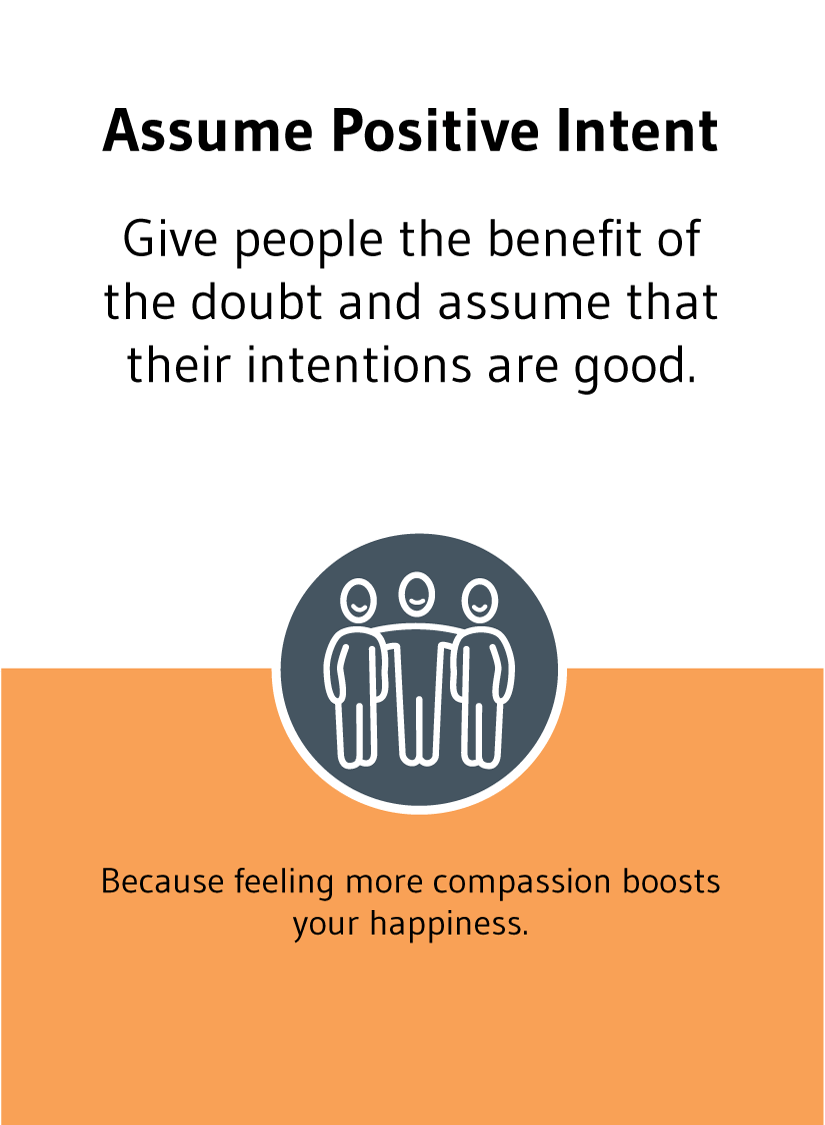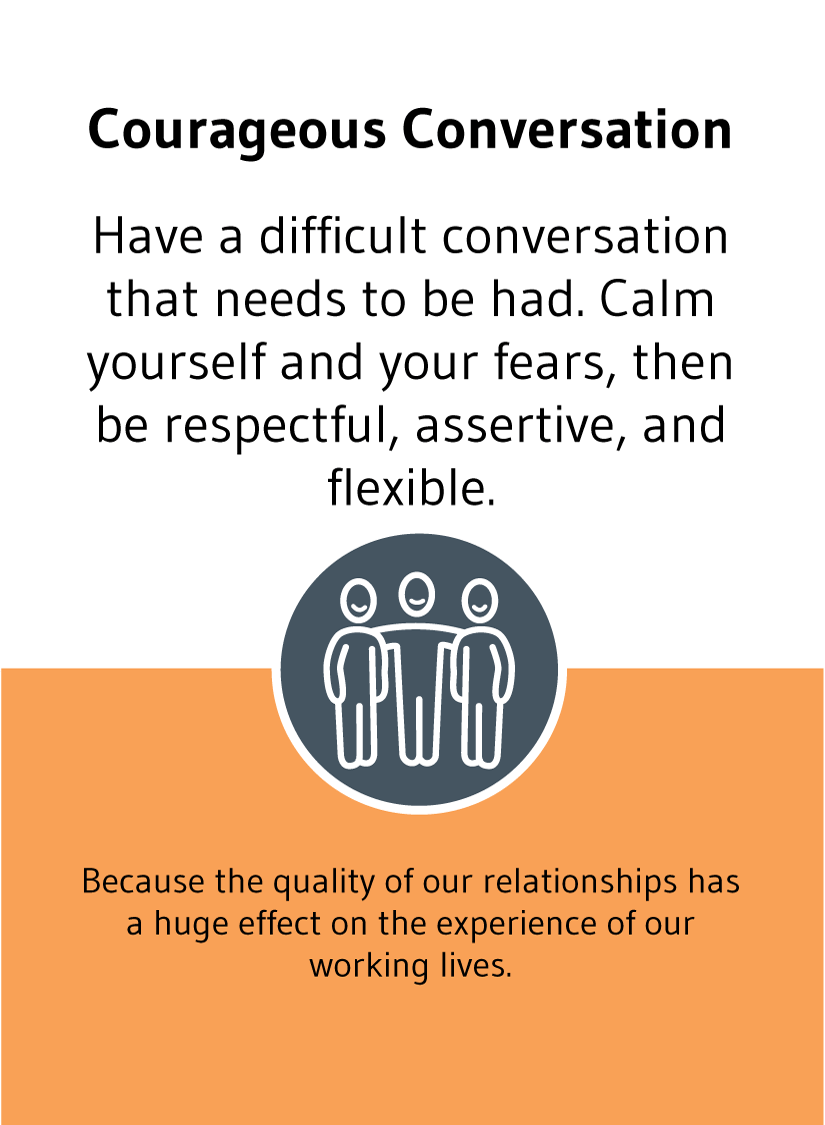
Character vs. Circumstance: The Fundamental Attribution Error
What is the Fundamental Attribution Error, how does it make your work harder, and how can you fix it? Let me explain, starting with a story:
Imagine a busy work week, where everyone has a backlog of tasks assigned plus a critical deadline coming up. You committed to delivering an article for your company’s blog so it can be reviewed by your peers on Monday morning. However, your circumstances at home caused you to move your deadline to Tuesday morning instead. And then this happened…
Tuesday morning: “Kim and Scott, currently catching up on tasks I missed last weekend; I’ll have the blog post drafted in WordPress by Thursday morning your time. Thanks for understanding.”
Thursday morning: “Scott, I’m sorry but I have to delay the blog post draft once again. I was planning on submitting it today, but I’m really dizzy. I truly hope for your understanding.”
If you were the recipient of these emails, what would your reaction be? Would you feel irritated? Disappointed? Disgruntled about how unprofessional and unreliable your colleague is?
Now, what if you were the one who sent the message? Knowing the tough circumstances that led to the delays, would you cut yourself some slack?
Answering “yes” to any of the questions above is a typical response, and is perfectly human. We are more understanding of our own situation because we know ourselves better—our character and what is happening in our daily lives—while we only get a glimpse of other people’s situations.
The Fundamental Attribution Error
This phenomenon is what we call the Fundamental Attribution Error (FAE), also known as correspondence bias or the attribution effect. FAE is our “tendency to draw inferences about a person’s unique and enduring dispositions from behaviors that can be entirely explained by the situations in which they occur.” In simpler terms, we attribute a person’s actions to their character instead of considering their current circumstances.
To illustrate the Fundamental Attribution Error another way: if I’m curt with you in a meeting, it’s because my young daughter is sick, so I didn’t sleep much last night. Don’t take it personally! If you are curt with me in a meeting, it’s because you are a jerk! That’s the FAE in action.
The Fundamental Attribution Error has been validated in several scientific studies. It’s considered one of the most disruptive behaviors in the workplace due to its detrimental effects.
1. Impact to Evaluation
It can lead to unfair assessments of an individual’s performance, especially when coupled with the phenomenon called “recency error.” That error occurs when we evaluate a person’s performance based on their most recently observed behavior, rather than their entire body of work during the evaluation period.
2. Impact to Work Relationships
When we quickly jump to conclusions without considering the full situation, it can lead to incorrect perceptions of a person’s work attitude. As managers, repeatedly committing the Fundamental Attribution Error can lead to loss of trust in our leadership, and could be misconstrued as discrimination by our employees.
How to avoid our biases?
There are indeed instances in which perceived faults are due to a person’s character, not their circumstances. However, to ensure that we are not letting our biases affect how we deal with others, here are a couple of tips from the science of happiness.
Assume Positive Intent
 When we assume positive intent, we give others the benefit of the doubt. We choose to think positively about our colleagues’ actions or decisions and even try to put ourselves in their situation. “Assuming positive intent changes your state of mind to be more open and aware, rather than defensive or restrictive, which can activate the brain’s fight, flight or freeze response.”
When we assume positive intent, we give others the benefit of the doubt. We choose to think positively about our colleagues’ actions or decisions and even try to put ourselves in their situation. “Assuming positive intent changes your state of mind to be more open and aware, rather than defensive or restrictive, which can activate the brain’s fight, flight or freeze response.”
I once attended a leadership workshop spearheaded by Mitesh Khatri. A key takeaway that I had from that workshop is this equation, which strongly correlates to the Science of Happiness: “Situation + Meaning = Emotion.” What this equation represents is this—the emotion that we feel is based on the meaning that we associate with the current situation that we are in. In short, happiness is a choice!
For example, imagine you completed a presentation at work. Your boss approaches you and gives you several suggestions for improvement. You associate the feedback with the interpretation that you are a crappy presenter—and as a result, you feel discouraged. But what if you think of the feedback as something positive; as a sign your boss is engaged, and giving you an opportunity to learn more about becoming an effective presenter? You would feel good and energized, right?
To change what you believe and feel, try assuming positive intent (and meaning) in each situation.
Have Courageous Conversations
 As a leader, it is highly important to open up difficult conversations with your team members to clear up biases or wrong assumptions at work. Instead of attributing an employee’s action to their character, we can open up a discussion and sincerely ask what our team member might be going through and offer them support, should it be needed.
As a leader, it is highly important to open up difficult conversations with your team members to clear up biases or wrong assumptions at work. Instead of attributing an employee’s action to their character, we can open up a discussion and sincerely ask what our team member might be going through and offer them support, should it be needed.
I once had a team member who I caught sleeping at his desk several times during working hours. Initially, I got irritated at the seemingly blatant disregard for our code of conduct. But in order to be fair, I decided to have a chat with him before I issued a memo.
It turned out that his mother was sick, and he was taking care of her in the evenings; but since we had a looming delivery deadline, he still reported to work to contribute to the project. I truly felt guilty for assuming the worst. But due to the open and candid conversation we had, we were able to find a win-win approach that enabled him to still contribute to the project, while also taking care of his mom without sacrificing his health further.
What Would You Do Differently?
Going back to the initial scenario at the start of this blog post (which is actually a true account of what happened as I worked on this blog post), how would you react to your colleague’s delays now that you know about the Fundamental Attribution Error? What would you do differently to get your correspondence bias under control?
(By the way, my boss knows the science of the Fundamental Attribution Error, so he asks about background circumstances, and is very patient with me! The more everyone knows about the FAE, the more all of us can give and receive understanding at work. Please share this article to spread the science–and share your thoughts in the comments!)